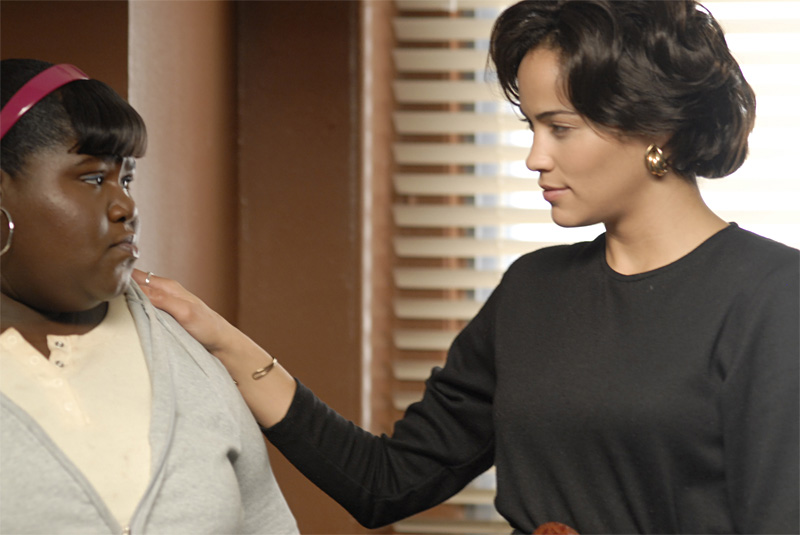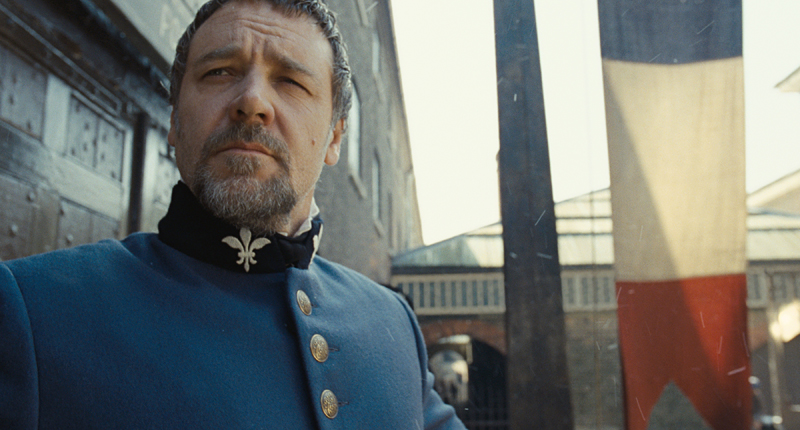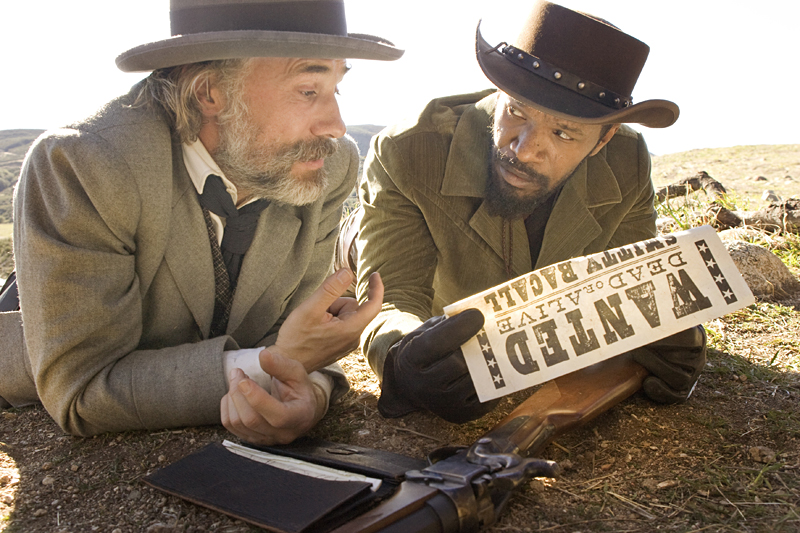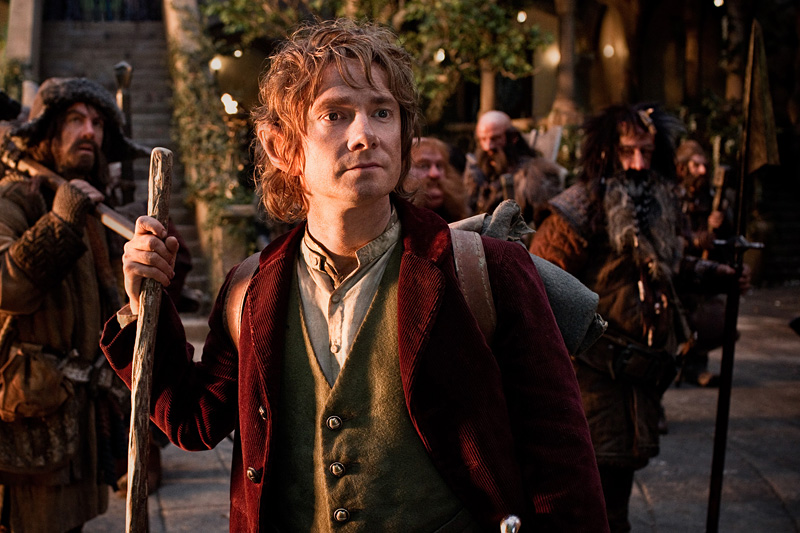In her broad outlines, Claireece Precious Jones risks sounding like the epitome of ghetto cliché: an obese, illiterate 16-year-old; mother of a four-year-old Down Syndrome daughter and now pregnant again; physically and psychologically abused by her mother; repeatedly raped by her father, who is also the father of her two children. Precious—as she prefers to be called—is the central figure in the poet Sapphire’s bestselling 1996 novel Push, an homage of sorts to The Color Purple (which it directly references and also mirrors in its diaristic style) set in the pre-gentrification Harlem of the mid-1980s. And it’s a testament to Sapphire’s affecting prose (written in Precious’ own words and dialect) that her protagonist emerges as something more than a mere statistic or representative—that we understand how Precious’ story is, for all its commonalities with those of other abused black women, uniquely her own.
Directed by Lee Daniels, Precious: Based on the Novel “Push” by Sapphire is a somewhat blunter but nevertheless effective object. Working from screenwriter Geoffrey Fletcher’s faithful adaptation, Daniels cultivates an aesthetic that is often more grotesque than artful, sometimes artfully grotesque (like a Courbet painting), and rarely delivered with less than a sledgehammer thwack. Bleak though it was on the page, the apartment shared by Precious (newcomer Gabourey Sidibe) and her layabout welfare mother, Mary (Mo’Nique), here appears like a Lenox Avenue Grey Gardens, with a television perpetually tuned to The $100,000 Pyramid and curtains that don’t seem to have parted since whatever decade Mary last left the premises.
When Daniels flashes back to Precious’ horrifying rapes, the wide-angle close-ups of her father’s heaving body, and of fried chicken sizzling on the stove, feel like outtakes from one of Rudy Ray Moore’s outré blaxploitation farces (or from Daniels’ own risible, little-seen debut feature, Shadowboxer, featuring Helen Mirren and Cuba Gooding Jr. as oedipal hired assassins). And when Precious enrolls at the alternative school where a teacher improbably named Blu Rain (Paula Patton) inspires her to stand and deliver, the classrooms are wreathed in ethereal light.
Hothouse melodrama one moment, kitchen-sink (and frying-pan-to-the-head) realism the next, with eruptions of incongruous slapstick throughout, this may be Daniels’ stab at finding a cinematic analog for the novel’s inventive, naif-art language—a film style, like Precious’ writing style, seemingly being made up as it goes along. Yet even at its most schizoid, Precious still packs a wallop. What Daniels lacks as a craftsman he makes up for in his willingness to put the lives of abused and defeated black women on the screen with brute-force candor and a lack of sentimentality.
Where Push the novel echoed The Color Purple the novel, Precious the movie operates as something of a corrective to Steven Spielberg’s 1985 film, with its narrative sanitizing and artery-clogging Quincy Jones score. Its own inspirational touches notwithstanding (not for nothing did it cop the audience awards at Sundance and Toronto earlier this year), Precious is less about overcoming adversity than about survival—a battle the movie does not begin to pretend can be won in two hours of screen time. No slumdog millionaires here; Daniels’ movie puts us through hell—Precious’ hell—and leaves us somewhere like limbo.
A former casting director, Daniels shows undeniable savoir-faire with his actors, a mix of musicians and comedians effectively cast against type, from a dark-haired, deglamorized Mariah Carey as a tough-love social worker to a subtle Lenny Kravitz as an attentive male nurse. The picture belongs, however, to the gale-force Mo’Nique, who transforms an ostensibly one-note monster mom into a complex portrait of a psychologically damaged woman (no matter that Daniels seems to have edited her most showstopping scene in a blender), and to the magnanimous Sidibe, who carries the alternately exhausting and exhilarating narrative on her formidable shoulders.
For most of the movie, her stoically beautiful face stays wrought tight in a mask of sadness and self-loathing. When Sidibe relaxes those muscles ever so slightly—one of the movie’s few subtle touches—it’s as if a weight of centuries has been lifted.








